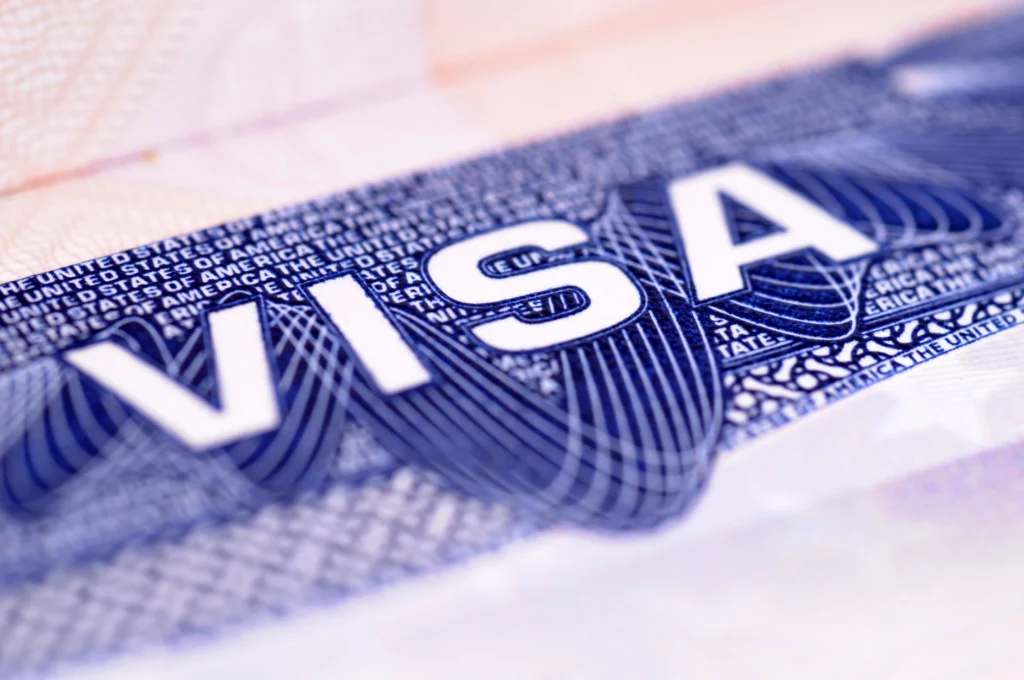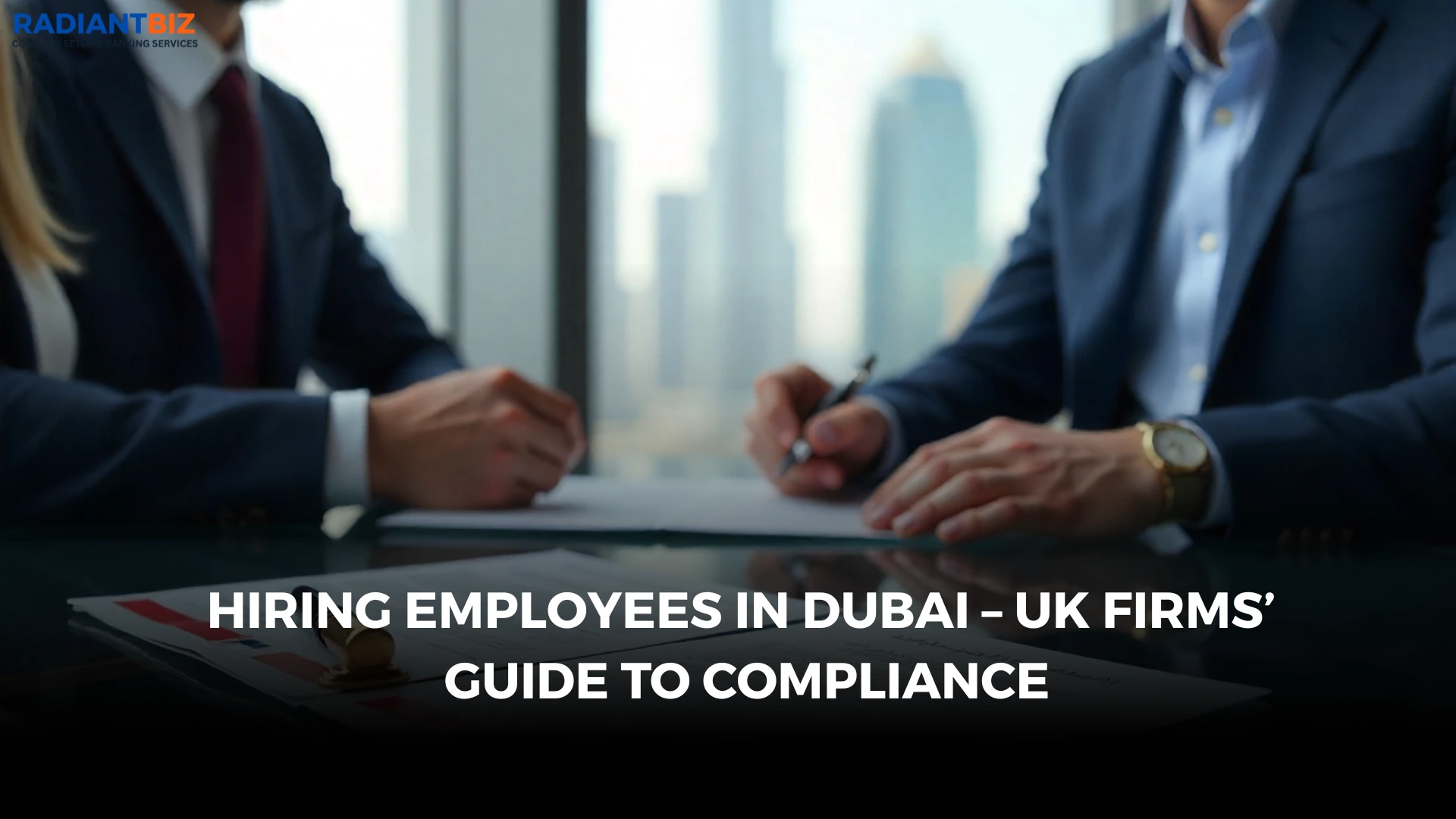Hiring Employees in Dubai: Labour Laws and Visa Quotas Explained
For any UK company planning to expand to Dubai, compliance with domestic labour laws is a must. As appealing as the UAE’s low-tax, multicultural environment and diverse talent pool may be, its employment rules are quite different from those in the UK.
Employment law in Dubai is administered mainly through Federal Decree Law No. 33 of 2021 for Regulating Labour Relations, addressing contracts, working time, annual leave entitlements, and conflict resolution. In contrast to the UK, where employment law is subject to both statute and case law, Dubai has codified legislation with harsh punishment for non-adherence.
For businesses in the UK, knowing these regulations up front saves money in terms of avoided fines, facilitates easy recruitment, and increases employee trust. It is not merely a matter of legal compliance, it is about having a sustainable operational platform in the UAE.
What are the key legal requirements for recruiting Dubai employees?
The primary legal requirements are to provide a valid employment contract that has been issued in accordance with the Ministry of Human Resources and Emiratisation (MoHRE) in the case of mainland companies or with the appropriate free zone authority in the case of free zone companies.
Health insurance must be provided, visa and work permit fees covered, and minimum notice periods obeyed. Employment contracts in Dubai are now standardised as fixed-term ones with a maximum term of three years (renewable). Probation periods should not go beyond six months.
Significantly, the legislation requires payment of salaries through the Wages Protection System (WPS) for transparency. In contrast to the UK, Dubai also has stringent regulations regarding payments of end-of-service gratuities rather than pension contributions, so this is a key area that UK employers need to grasp.
How does the UAE work visa system work for foreign employees?
Foreign workers in Dubai need a work visa and a residence permit to begin working legally. It is an employer-sponsored process, the company that intends to hire the employee has to sponsor the employee’s visa.
Once the offer has been accepted, the employer files for an entry permit, then medical checks, Emirates ID issuance, and only then issues the residence visa. The standard validity is two years for mainland firms and two or three years for free zone firms.
For UK firms, this translates to accounting for visa timelines when scheduling onboarding. It is also worth mentioning that visa regulations can be different in Dubai mainland versus free zones, so coordinating your hiring plan with your place of business is necessary.
What are visa quotas and how do they impact UK firms recruiting in Dubai?

The visa quota decides the number of foreign workers a business can sponsor in one go. On the mainland, quota is fixed by MoHRE and depends on office space size, type of business, and Emiratisation needs.
In free zones, quota is generally tied to the number of desks or office spaces rented. For instance, a tiny office would grant three visas, whereas a big one could grant 10 or more.
Previously, UK businesses would open recruitment without regard for quota limitations may be left short of importing all they wished to employ simultaneously. Thus, strategically planning office space is critical, not merely for business but also for realising enough visa entitlements.
How does the Emiratisation policy affect foreign recruitment?
The government of the UAE’s Emiratisation strategy hopes to boost the UAE nationals working in the private sector. As of the latest updates, organisations with 50 or more qualified employees are mandated to recruit UAE nationals at a rate of 2% per year until a threshold is met.
Failure to comply attracts hefty monthly fines. Free zones have more lenient Emiratisation regulations for now, but mainland organisations are impacted directly. For British companies, this requires weighing the attraction of foreign expertise against the development of Emirati professionals as part of their staff.
Going beyond compliance, the employment of local talent may also enhance market understanding, reinforce business connections, and show corporate commitment to the UAE.
What are the working hours and overtime regulations in Dubai?
The normal working hours in Dubai are eight hours a day or 48 hours a week, with fewer hours during Ramadan for all employees, irrespective of religion.
Overtime is payable if the employee exceeds these amounts, with the rates between 125% and 150% of the regular hourly wage, and even more for night work. Differing from UK flexible working standards, Dubai practices stricter controls on maximum working hours, though some sectors, such as hospitality and building construction, have exemptions. UK businesses must expect to make adjustments to operational requirements and staffing rosters in order to comply with these regulatory demands.
What kinds of employment contracts are permissible under Dubai law?
All UAE employees since February 2022 need to be employed on fixed-term contracts. These contracts are for a maximum period of three years and can be renewed. There are no open-ended contracts as in the UK, although renewals can, in effect, lead to long-term employment.
Salary, job, working time, holiday entitlements, and terms of termination have to be specified in the contract. UK employers will find that Dubai’s approach to contractual clarity reduces ambiguity, but it also requires careful drafting to ensure both compliance and protection of the company’s interests.
How is employee termination handled in Dubai?

Termination procedures in Dubai are strictly regulated. Employees are entitled to a minimum notice period of 30 days, which can extend up to 90 days if agreed in the contract. Termination without notice is permitted only in extreme cases of serious misconduct as stipulated by law. When terminated, employees should receive their final salary, compensation for leave that has not been used, and end-of-service gratuity (computation based on length of service and basic salary).
For UK companies, it is imperative to know these financial commitments to minimise disputes and be a good employer.
What is the end-of-service gratuity, and how is it calculated?
As opposed to a pension system, as in the UK, Dubai employers have to pay end-of-service gratuity to those who have served for more than one year. It is computed on 21 days of basic salary per year for up to five years and 30 days per year over and above the first five years, limited to two years’ total salary.
Gratuity is computed on basic pay alone, leaving allowances out. For British businesses, this is a significant financial factor, particularly when dealing with long-term employee contracts.
How can British businesses ascertain compliance with health and safety legislation in Dubai?
Workplace health and safety are of significant importance to Dubai, particularly in industries such as construction, manufacturing, and hospitality. Employers should ensure that they have a healthy working environment, adopt safety training policies, and report accidents. Failure to comply can result in fines, stoppages, and even suspension of operations. Even if UK businesses already possess strong health and safety policies, ensuring they comply with UAE regulations is crucial.
Free zone authorities also have their own safety regulations, so complying with jurisdiction-specific regulations is also vital.
How do free zones impact employment and visa procedures?
Dubai free zones provide streamlined recruitment procedures, easy visa formalities, and in most instances, no Emiratisation obligations. Every free zone authority has its own governing authority for labour affairs in its jurisdiction, so contracts, resolutions of disputes, and visa requests are managed in-house rather than by MoHRE. For UK companies, this may translate to quicker hiring and more mobility. But free zone visas typically limit staff members to working inside that free zone unless further permits are secured.
How can UK companies acquire and hire talent in Dubai?
Dubai’s workforce is incredibly diverse, with professionals from across the globe. UK companies can recruit through online job portals, recruitment agencies, industry networking events, and LinkedIn. Hiring locally can be faster, as candidates may already have residence visas. However, when hiring from overseas, factoring in visa processing times is essential. Additionally, some sectors, such as finance, healthcare, and education, require candidates to have UAE-recognised qualifications before starting work.
What are some typical errors made by UK businesses when recruiting in Dubai?
Common pitfalls include underestimating visa processing times, failing to account for quota limitations, ignoring Emiratisation obligations, and using non-compliant contracts. Another frequent issue is misunderstanding the Wages Protection System requirements, leading to fines. UK companies sometimes also assume UK-style probation flexibility, but Dubai’s probation rules are stricter. Avoiding these mistakes requires engaging with local legal advisors or business setup consultants who understand both UK expectations and UAE requirements.
How can UK businesses remain current on changes in Dubai labour law?
The UAE government updates labour and immigration laws periodically to promote its economic agenda. UK companies can keep themselves up-to-date through MoHRE subscription, referring to their free zone authority, and involving professional HR and legal consultants.
Membership in British business councils in Dubai also offers useful networking and knowledge-sharing for employers. Being proactive on compliance not only avoids legal issues but also builds an employer’s reputation in the region.
Seek our professional on-the-ground guidance, contact us via mail at info@radiantbiz.com or WhatsApp & call us at +44 7398 573313!

